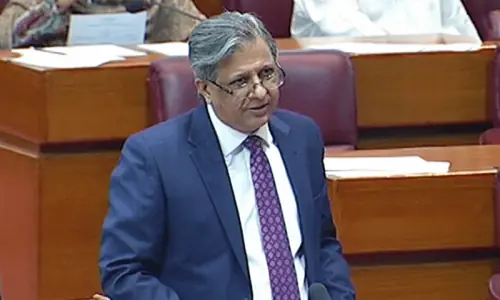WHEN Saudi Crown Prince Mohammad bin Salman visited Pakistan in February, one of the highlights of his trip came at the very end of it. In an unprecedented move, Prime Minister Imran Khan made a humane appeal on behalf of the families of thousands of Pakistani prisoners languishing in Saudi jails: he asked the Saudi prince to look after the well-being of this largely poor and marginalised segment and treat them as if they were his own people, to which the prince smiled and said he could not refuse a request from Pakistan. The next day, there was news of over 2,000 Pakistani prisoners to be released from jail on the prince’s instructions. The decision was applauded by all — but then what? Few bothered to follow up on the sudden announcement; two months have passed since it was made, but only some 200 convicts have been released so far. A recent report by Justice Project Pakistan titled, Through the Cracks: The Exploitation of Pakistani Migrant Workers in the Gulf Recruitment Regime, is a reminder of the state of the remaining prisoners who are still behind bars in a country that is known for its generous use of the death penalty and whose criminal court procedures lack transparency. The report’s release is especially timely right after the brutal execution of a Pakistani couple earlier this month for allegedly attempting to smuggle heroin into the kingdom — the first incident of a Pakistani woman being executed in five years in the kingdom. The couple’s eight-year-old daughter has returned home an orphan.
Out of the 11,000 Pakistanis stuck in foreign prisons, around 3,300 are in Saudi Arabia. Their families at home know little about their condition and are in a great deal of distress. There is evidence that many of the convicts are poor workers simply in search of employment or looking to perform their religious obligations in the holy cities, but get trapped by unauthorised intermediaries who operate illegally as overseas employment promoters and deceive or coerce unsuspecting victims into drug trafficking. These prisoners are not cold-blooded criminals, but victims of the system. Mr Khan said the right things in the presence of the Saudi prince and was correctly praised for his concern. But we have to move beyond that — and very quickly. The prime minister must not abandon the Pakistani citizens and their families that have reposed their hopes in him.
Published in Dawn, April 25th, 2019



























